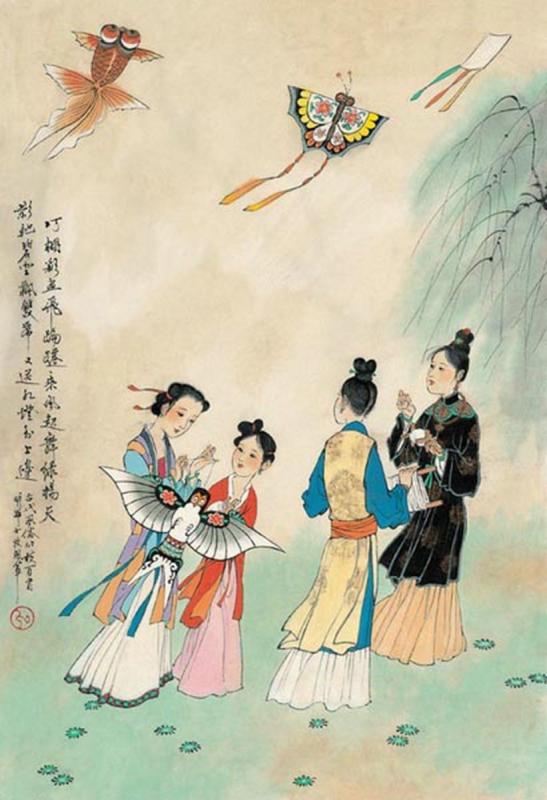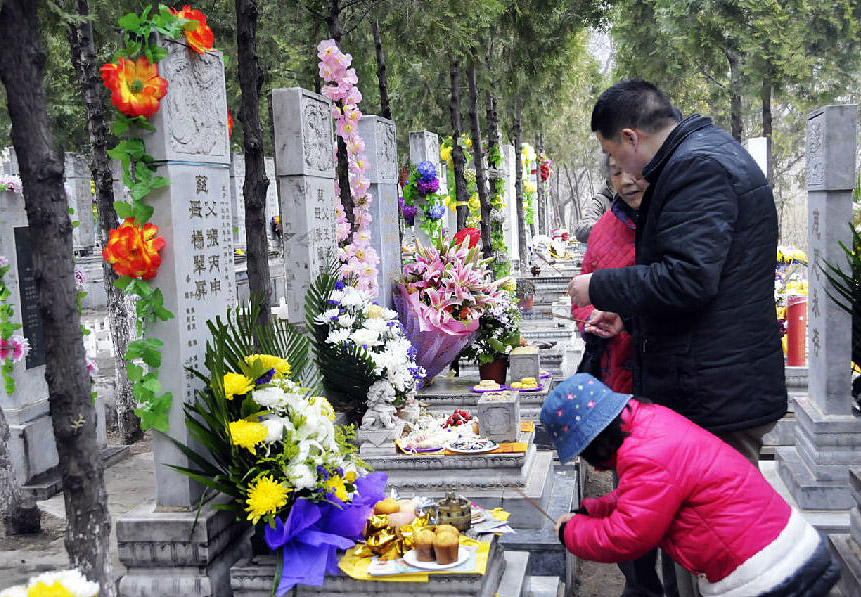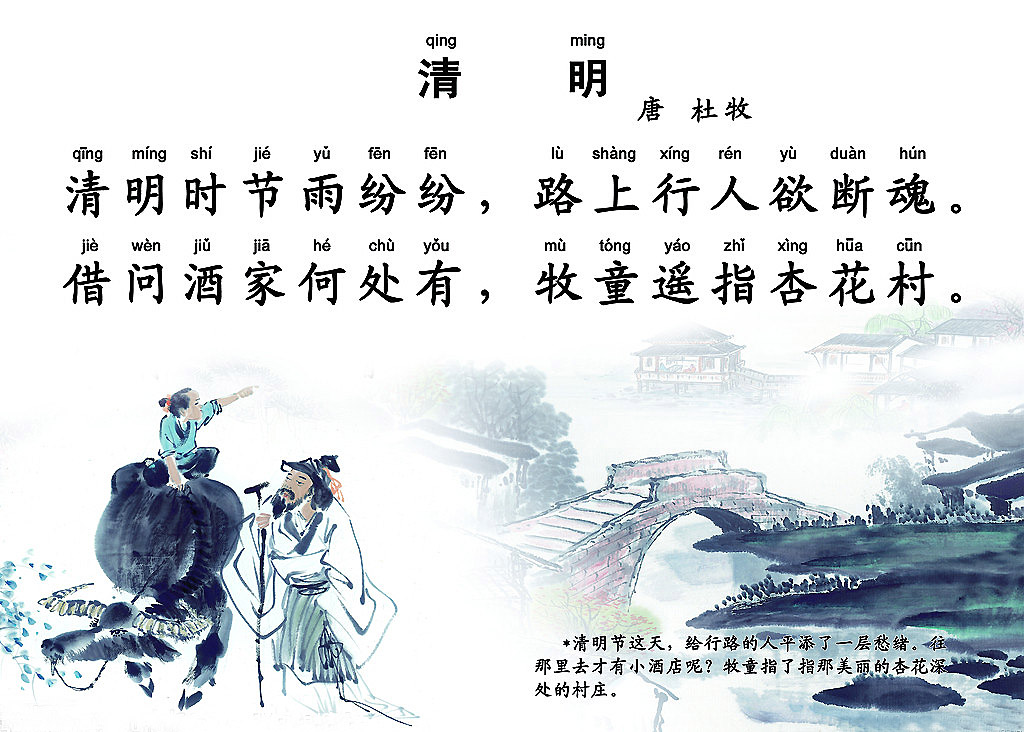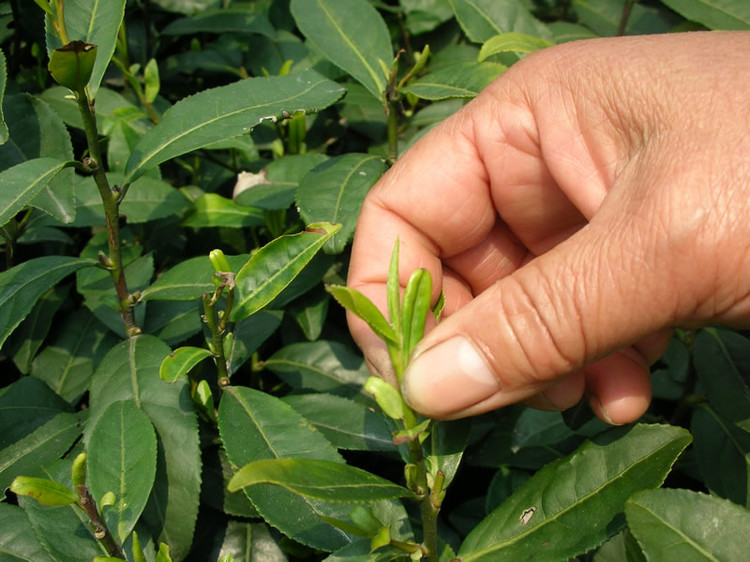Tomb Sweeping Festival
Origin of Tomb Sweep Festival
Qingming was celebrated since Western Zhou Dynasty over 2, 000 years ago. People go outdoors for dancing, singing, picnics and kite flying. It was common to color boiled eggs and break them open to symbolize new life. Trees were planted to symbolize the renewing of spring.

With years by, the celebration of life included honoring the past ancestors and offering sacrifices in front of their tombs. Chinese people believed deceased ancestors looked after the family and sacrifice would make them happy resulting in the prosperity of the whole family. Tomb sweeping is a good time to cherish the memory of the dead and to tidy the area around where they are buried. Double satisfaction including visiting dead relatives' grave and going out for a walk at that clean spring time.

According to traditional custom, wine, fruit and food, which the deceased people loved to eat when they were alive. Underworld paper money is burnt as an offering, grave being tied and green branches or flowers placed on the tomb, and the people all bowing down to honor the departed relatives. After the ceremonial aspects, people then eat all the food and show respects to their loved ones before going home.
Sacrifices are not only placed at the graves, Chinese people regularly provide offerings to their ancestors at altar tables at home, mostly at living rooms. Chicken, eggs, rice, or other dishes are provided. They are carefully arranged with burning incense as to expedite the transfer of nutritious elements to the ancestors.Chinese Culture & Qing Ming
Qingming was frequently mentioned in ancient Chinese works, the most famous one is the poem by Du Mu, "A drizzling rain falls like tears on the Mourning Day; the mourner's heart is breaking on his way. Where can a wine house are found to drown his sadness? A cowherd points to Almond Flower (Xing Hua) Village in the distance.

Qingming is also significant in Chinese Tea Culture since it is the specific day which dividing the fresh green tea by their picking dates. The premium early season is know as "Pre-Qingming" (mingqian in Chinese). Green tea picked before Qingming are of higher value and price, as the short production cycle and required experienced workers. The famous type was Yu Qian Long Jing (Dragon Well before the Rain), only have 10-day long to pick and of much lighter and subtler aromas than those picked after the festival.

Related reading:
Making Qingtuan for Qingming Festival







